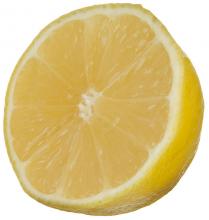Writers write daily to improve their writing. It's a habit.
Comedians tend to be in such a habit of generating comedic routines that they can't shut it off, and annoy their families.
Skepticism is similar in that it's a habit. It's something that needs to be practiced and maintained. Similar to "muscle memory", it needs to be a reflex that kicks in automatically. The idea of not applying skepticism evenly is contrary to skepticism, except to those things that already passed vetting.
Personally, I try my best to stay skeptical... which is why my blood pressure rises when yet another health-advice article is shared on Facebook, and pops up in my feed. For instance:
https://jerseydemic.com/cut-lemons-and-keep-them-in-your-bedroom-this-will-save-your-life/
(I won't link it up - so you'll have to copy and paste)
This article makes a number of bald-faced claims, such as:
- "Lemons can also prevent other severe diseases such as cholera and malaria."
- "Lemons can easily cure numerous diseases such as arthritis, indigestion, and rheumatism."
- "Cut a lemon in half and rub on the affected areas of your body."
It's literally telling you to rub Citric Acid on your body.
So I, as the habitual skeptic, wonder, "What are their sources for this information?". Luckily for me, they list a "source" link. I click, and what do I find? I find another article, making the same exact claims verbatim, and with zero sources.
For all the turmoil caused by "fake news" lately, we've actually been dealing with this equivalent to "fake news" for a long time now - fake articles shilling unsupported health advice. It's been rampant for years.
Now, if this had been an article about "healing crystals that will cure your arthritis with positive energy vibrations", these same people sharing the article would have scoffed (or more likely to). Why, though? Well, we tend to compartmentalize between a "pre-approved" health source (fruit), and rocks. So one gets a free pass, and the other doesn't.
Ultimately, what's the difference between the healing-crystals and the cut-lemons articles? They're the same in one regard - neither is supported by primary sources.
It's tempting to just snobbishly gloss over this as "well, gullible people will be gullible", but it's dangerous. The person who uses lemons to fight malaria, before going into a malaria-prone region, is more likely to be infected, than the person getting the scientifically-proven malaria medicine[1].
There was another article saying that drinking a glass of water before bed each night will reduce changes of heart attacks. What people are prone to do, is take the "fake news" advice over seeking professional help.
It can get people killed.
Take coffee - despite ongoing scientific studies to learn the health effects of coffee, we still get a mixed bag of results. Some show positive health effects, some negative. By itself, that's not a failure of science. That just means that the situation is more complex than we thought, and multiple studies are needed to suss out the underlying reality. Some studies may have been incompetently executed. Some analyses of "good" and "bad" may be examining specific affects (affect on sleep cycles versus concentration). The studies may reveal differences between American and European diets, that affect the coffee outcomes.
That's just the ongoing process of science... and it's difficult. Despite the ongoing rigors and resources of science, that topic is still in the air.
Yet, people will just automatically believe some unsourced article about lemons shared on Facebook?
Two people I know commented, saying "Huh I never knew that" and "Neither did I?" ...and you two still don't know it.
Here's my advice - get skeptical, and apply it evenly.

